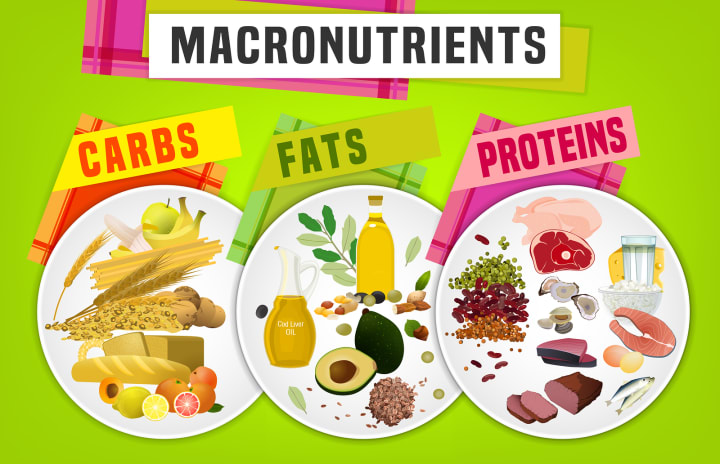
Weight loss has become a widespread concern in today's society due to the rising prevalence of obesity and its associated health risks. While many people embark on various diets and weight loss programs, achieving long-term success often remains elusive. One crucial aspect that is frequently overlooked in the pursuit of weight loss is balanced nutrition. A balanced diet plays a pivotal role in weight management, not only in shedding excess pounds but also in ensuring overall well-being. This article will delve into the significance of balanced nutrition in weight loss, exploring its benefits, key components, and practical tips for achieving sustainable and healthy results.
Click here to improve your weight loss process
The Foundation of Balanced Nutrition:
Balanced nutrition is a dietary approach that involves consuming a wide variety of nutrient-rich foods in appropriate proportions. It emphasizes obtaining essential macronutrients (carbohydrates, proteins, and fats) and micronutrients (vitamins and minerals) necessary for proper bodily functions. A balanced diet ensures that the body receives all the essential nutrients it needs to function optimally, while also supporting the metabolism and energy expenditure.
Promotes Weight Loss and Fat Reduction:
A balanced nutrition plan aims to create a calorie deficit by managing the number of calories consumed and expended. By adopting a balanced diet, individuals can control portion sizes, choose nutrient-dense foods, and avoid empty calories, leading to gradual weight loss and fat reduction. Unlike fad diets that often lead to rapid weight loss followed by weight regain, balanced nutrition promotes steady and sustainable progress.

Sustains Energy Levels:
Weight loss can be physically demanding, and low-calorie diets may cause energy levels to plummet. A balanced nutrition plan ensures adequate intake of carbohydrates, the body's primary energy source, providing the energy needed to stay active and maintain a consistent exercise routine. This sustained energy enhances overall physical performance and motivates individuals to stay on track with their weight loss journey.
Supports Muscle Maintenance:
Many weight loss approaches focus solely on reducing body weight, neglecting the importance of preserving muscle mass. A balanced diet incorporates sufficient protein intake, which aids in the maintenance of lean muscle mass during weight loss. Preserving muscle mass is vital, as it helps to boost metabolism, burn more calories, and achieve a toned and sculpted physique.
Improves Digestive Health:
A balanced nutrition plan emphasizes the inclusion of dietary fiber, found in fruits, vegetables, and whole grains. Fiber plays a crucial role in promoting healthy digestion, preventing constipation, and supporting gut health. A well-functioning digestive system enhances nutrient absorption, which further contributes to overall well-being during the weight loss journey.
Click here to improve your weight loss process
Key Components of a Balanced Nutrition Plan:
Adequate Macronutrients:

Balanced nutrition includes a well-calibrated intake of carbohydrates, proteins, and fats. Carbohydrates provide energy and should primarily come from whole grains, fruits, and vegetables. Proteins aid in muscle maintenance and can be sourced from lean meats, poultry, fish, legumes, and plant-based protein options. Healthy fats, such as those found in nuts, avocados, and olive oil, are essential for various bodily functions, including hormone regulation and nutrient absorption.
Micronutrient-Rich Foods:
In addition to macronutrients, balanced nutrition emphasizes the intake of vitamins and minerals essential for maintaining good health. A diet rich in colorful fruits and vegetables provides an array of antioxidants, vitamins, and minerals that strengthen the immune system, support cellular functions, and protect the body from oxidative stress.
Portion Control:
Balanced nutrition involves portion control to manage calorie intake effectively. Overeating, even on healthy foods, can hinder weight loss progress. Understanding appropriate portion sizes helps individuals maintain a calorie deficit while still enjoying a satisfying and nutritionally balanced meal.
Hydration:
Adequate hydration is often underestimated in weight loss journeys. Drinking sufficient water not only aids in digestion but also helps control appetite and prevents overeating. Replacing sugary beverages with water or herbal teas can significantly contribute to overall calorie reduction.
Practical Tips for Achieving Balanced Nutrition and Weight Loss:
Meal Planning:
Creating a weekly meal plan helps individuals make conscious and nutritious food choices, reducing the likelihood of impulsive eating decisions.
Reading Food Labels:
Learning to read food labels assists in identifying hidden sugars, unhealthy fats, and overly processed ingredients, enabling better food selection.
Cooking at Home:
Cooking meals at home allows individuals to control ingredients, portion sizes, and cooking methods, ensuring balanced nutrition.
Mindful Eating:
Practicing mindful eating encourages paying attention to hunger cues, eating slowly, and savoring each bite, preventing overeating and promoting healthier food choices.
Regular Exercise:
Combining balanced nutrition with regular physical activity enhances weight loss results, improves cardiovascular health, and boosts mood and energy levels.
Click here to improve your weight loss process

The importance of balanced nutrition in weight loss cannot be overstated. A well-rounded and nutrient-dense diet not only aids in shedding excess pounds but also supports overall health and well-being. It sustains energy levels, preserves muscle mass, and promotes healthy digestion. By focusing on balanced nutrition as the foundation of a weight loss journey, individuals can achieve sustainable and healthy results, making long-term weight management a realistic and achievable goal. Remember, consulting with a registered dietitian or healthcare professional can provide personalized guidance and support throughout the weight loss process.





Comments
There are no comments for this story
Be the first to respond and start the conversation.